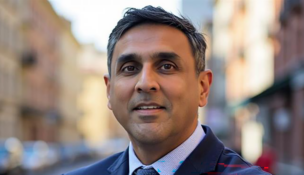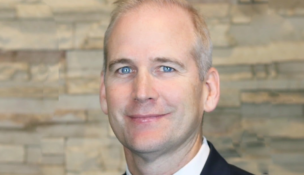Ex-U.Va. president alleges board members ‘complicit’ in exit
Ryan, Youngkin disagree over where push for Ryan's departure originated
Kate Andrews //November 14, 2025//

University of Virginia President Jim Ryan has reportedly resigned June 27, 2025, due to pressure from the U.S. Department of Justice. Photo courtesy U.Va.

University of Virginia President Jim Ryan has reportedly resigned June 27, 2025, due to pressure from the U.S. Department of Justice. Photo courtesy U.Va.
Ex-U.Va. president alleges board members ‘complicit’ in exit
Ryan, Youngkin disagree over where push for Ryan's departure originated
Kate Andrews //November 14, 2025//
Summary:
- Former U.Va. president Jim Ryan says governor, board members may have driven resignation, not the Department of Justice
- Gov. Glenn Youngkin wrote letter alleging two former rectors “persuaded” Ryan to resign
- BOV’s Paul Manning, Rachel Sheridan and Porter Wilkinson allegedly dealt directly with DOJ, Ryan writes
Former University of Virginia president Jim Ryan on Friday sent a 12-page letter to the university’s Faculty Senate detailing his sudden resignation, his first public accounting of the events leading up to his departure announcement June 26.
In the letter, he alleges that the push for him to resign as president may not have come directly from the U.S. Department of Justice but instead may have been driven by Gov. Glenn Youngkin, members of the university’s board of visitors, the university’s lawyers “or some combination of that group,” he writes.
“It’s not as if the Trump administration has been shy about calling for resignations,” Ryan writes. “Forcing university presidents to resign, moreover, has not been part of the playbook of the Trump administration; as far as I know, I am the only university president in the country who has been forced to resign as part of a supposed deal with the Trump administration. At the very least, we had board members who were apparently more complicit than other universities.”
Ryan also alleges that two recent letters by Youngkin and U.Va. Rector Rachel Sheridan addressing his resignation are “inaccurate” and that he released his own account to correct the record.
Youngkin wrote in a Nov. 13 letter to Gov.-elect Abigail Spanberger that “it’s clear that neither DOJ nor the current board leadership made Jim resign. His resignation took place under the leadership of [U.Va.] Rector Robert Hardie … and his resignation was encouraged personally by former Rector Rusty Conner, who was the rector during Jim’s hiring.”
Youngkin wrote that Hardie and Conner “persuaded” Ryan to “advance his previously planned resignation by several months because they believed he could not fully implement what they assumed would be included in the settlement agreement.”
However, Ryan’s letter alleges that three board members — Sheridan, the university’s rector as of July 1; Porter Wilkinson, vice rector as of July 1; and Paul Manning — kept Hardie, other board members and Ryan in the dark about specific negotiations, including the parameters of an external compliance review as part of the university’s agreement with the DOJ.
The governor’s office, Hardie, Conner and Manning did not immediately respond to requests for comment Friday. A U.Va. spokesperson declined to comment beyond Sheridan’s and Ryan’s letters.
Ryan writes that Sheridan, before becoming rector, advised Ryan to talk to an attorney friend, Beth Wilkinson, without telling Ryan that she had hired Wilkinson to advise the board, and that Hardie, still rector at the time, had not been informed of that decision.
On June 24, two days before he resigned, Wilkinson “told me that I was going to be kicked out one way or the other, and that if I didn’t resign, the board would fire me,” Ryan writes.
The former president notes that Harmeet Dhillon, associate attorney general for the DOJ’s civil rights division, “emphatically and publicly stated” twice that “neither she nor her DOJ colleagues demanded my resignation or offered some sort of quid pro quo,” Ryan writes. “This is not consistent with what I was told by [board members] Rachel [Sheridan] and Paul [Manning], but I was never in the room when these conversations took place.”
Ryan’s letter says he never spoke directly to the two DOJ attorneys conducting the civil rights investigation into U.Va., and that three U.Va. Board of Visitors members appointed by Youngkin — not including the then-rector, Robert Hardie — dealt directly with the federal prosecutors.
Hardie’s term as rector ended June 30, four days after Ryan’s resignation.
Spanberger’s transition team released her Nov. 12 letter to the U.Va. board, made up entirely of Youngkin appointees, asking them to delay the university’s hiring process for Ryan’s replacement as president until she takes office and has the opportunity to appoint members to the U.Va. board.
Ryan wrote that his letter, addressed to the faculty senators, is “not a direct response or a point-by-point rebuttal” of Sheridan’s and Youngkin’s letters, “which I do not think present an accurate accounting of my resignation.”
On the day that Ryan resigned, he writes, he received a call from Sheridan and two attorneys who attended a meeting with prosecutors and told him that “the only offer on the table was that I needed to resign by 5 p.m. that day or the DOJ would basically rain hell on U.Va.,” including that the DOJ “would extract/block hundreds of millions of dollars from U.Va. before they would even negotiate.”
In June, Manning shared with Ryan that he had heard from Youngkin and Sheridan “about the need for me to resign,” Ryan writes.
A few days earlier, Manning had “encouraged me to hang on,” Ryan’s letter says, but at a June 16 lunch, Manning “told me he had a different answer now and thought I should resign. He told me that, as a friend, he did not want me to go through the ordeal of trying to fight the federal government, and he was worried what the DOJ — and other agencies — might do to U.Va., especially with respect to research funding.
“He also told me that I would likely be blamed for the losses,” Ryan writes. “It was unclear to me whether this conversation was Paul’s idea, or whether he was carrying water for the governor and Rachel.”
Ryan concludes, “What is not clear to me … is whether the threat was real, or whether the idea came from the board members who spoke with the DOJ lawyers, our own lawyers, the governor, or some combination of that group.”
Rector Sheridan’s letter
Ryan’s letter comes a day after Sheridan sent a lengthy missive to the Faculty Senate about her and other officials’ roles in the university’s dealings with the U.S. Department of Justice, which under President Donald Trump has threatened pulling federal funding from universities it views as noncompliant with Trump’s executive order to dismantle diversity, equity and inclusion programs.
The bulk of Ryan’s letter was written over the summer “so I would have a record of the events while they were fresh in my mind. I was never sure if I would release it publicly, but I thought there might be a legislative hearing or inquiry that would require me to respond, and I wanted to make sure my memories were freshly recorded,” he added.
“I think it is time to set the record straight, which will hopefully enable U.Va. to make all necessary changes in order to end this chapter and begin a fresh, new chapter in the history of a remarkable university,” Ryan wrote.
Sheridan’s letter to the Faculty Senate says that she and Wilkinson, now the rector and vice rector of U.Va.’s board but at that time the chair and vice chair of the board’s Audit, Risk and Compliance Committee, were asked by Ryan in early June to speak directly with DOJ prosecutors investigating U.Va. — an assertion Ryan’s letter contradicts. He writes that he didn’t know why Sheridan and Wilkinson were tapped to deal directly with Justice Department attorneys.
Sheridan wrote that by mid-June, having received five letters from the DOJ’s civil rights division and hearing prosecutors’ statements at a June 3 meeting, “the gravity of the situation was apparent to everyone in U.Va. leadership.”
During the week of June 16, she added, “I received a call from fellow board member Paul Manning, who informed me that he had met with President Ryan, and that President Ryan had confidentially indicated that he was contemplating announcing that he would resign the presidency sooner than he had previously planned.”
Ryan, Sheridan noted, eventually stated in his departure letter that he planned to resign the presidency at the end of the 2025-26 academic year. Sheridan added that she and Manning met with Ryan on June 20 to discuss “the timing and consequences” of his resignation, and that they advised him to bring in an attorney to advise him.
“Following the conversation,” Sheridan wrote, “President Ryan called Mr. Manning to discuss the call and his potential resignation, and asked Mr. Manning to call the DOJ to confirm explicitly what [DOJ] officials had previously implied: that they did not trust President Ryan to faithfully implement any resolution of the pending investigations.”
She added that she and Manning told Ryan “multiple times that we would not be supportive of any potential efforts by the board to remove him.”
Ryan’s version of events
In Ryan’s Nov. 14 letter to faculty senators, he says that Sheridan reached out to him several days before the June 3 U.Va. Board of Visitors meeting and let Ryan know that she and Wilkinson were invited to attend a meeting with the DOJ attorneys.
“Why they alone were asked to meet with the DOJ remains unclear to me; it also remains unclear whether Rachel and Porter suggested that the current rector and vice rector should join them at the meeting,” Ryan wrote — differing from Sheridan’s version of events, in which she wrote that Ryan suggested that she and Wilkinson attend the meeting.
“I offered to join that meeting but was told I was not invited,” Ryan’s letter says. “I offered at a later time to go meet with the DOJ lawyers but was told by Rachel and Porter that that would be supremely unpleasant and would likely lead to a bad outcome. All of which means that I never once spoke directly with the DOJ lawyers; everything was communicated through Rachel, Porter and later another board member, Paul Manning.”
He added that Sheridan “reported to me after the meeting that the DOJ lawyers were very upset and that they basically insisted that I would need to resign in order to resolve the various inquiries and avoid the federal government inflicting a great deal of damage to U.Va. I found that a little shocking but also a little hard to believe.”
Ryan alleged in the letter that U.Va.’s deal with the DOJ was presented to him before his resignation as “blanket immunity,” but that after he submitted his resignation letter to Hardie, “that part of the agreement with the DOJ was that U.Va. would undertake an external compliance review … to ensure we were following the law.”
He added that “that piece of the agreement was not conveyed to me until after my resignation,” and that an external review shared with the DOJ “did not sound like blanket immunity to me, nor much different than the path we were headed down already,” before the board members told him that he was being pushed to resign.
“My chief of staff suggested to Robert Hardie that he should hold off on accepting my resignation until this was settled, but Robert indicated that the governor’s office was instructing him to accept the resignation on behalf of the board as soon as possible so that it would be irrevocable and the deal with the DOJ could be completed,” Ryan wrote.
-


















